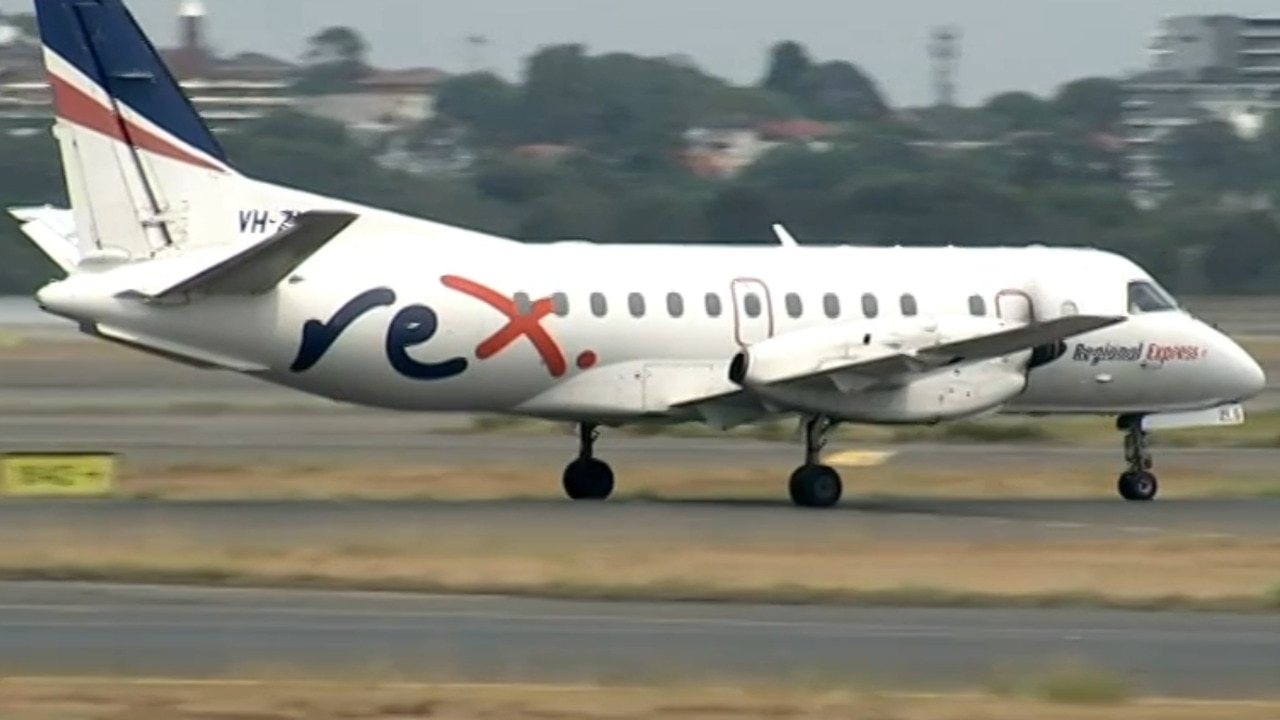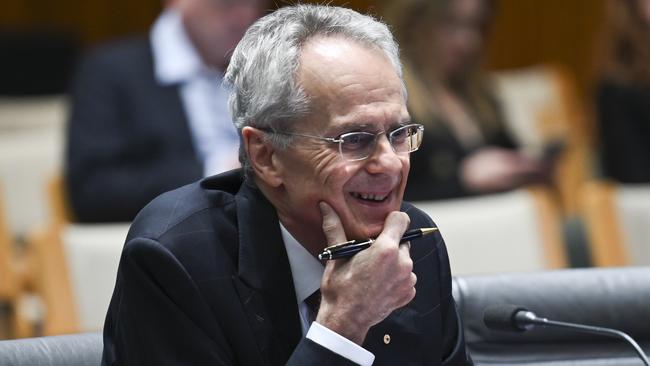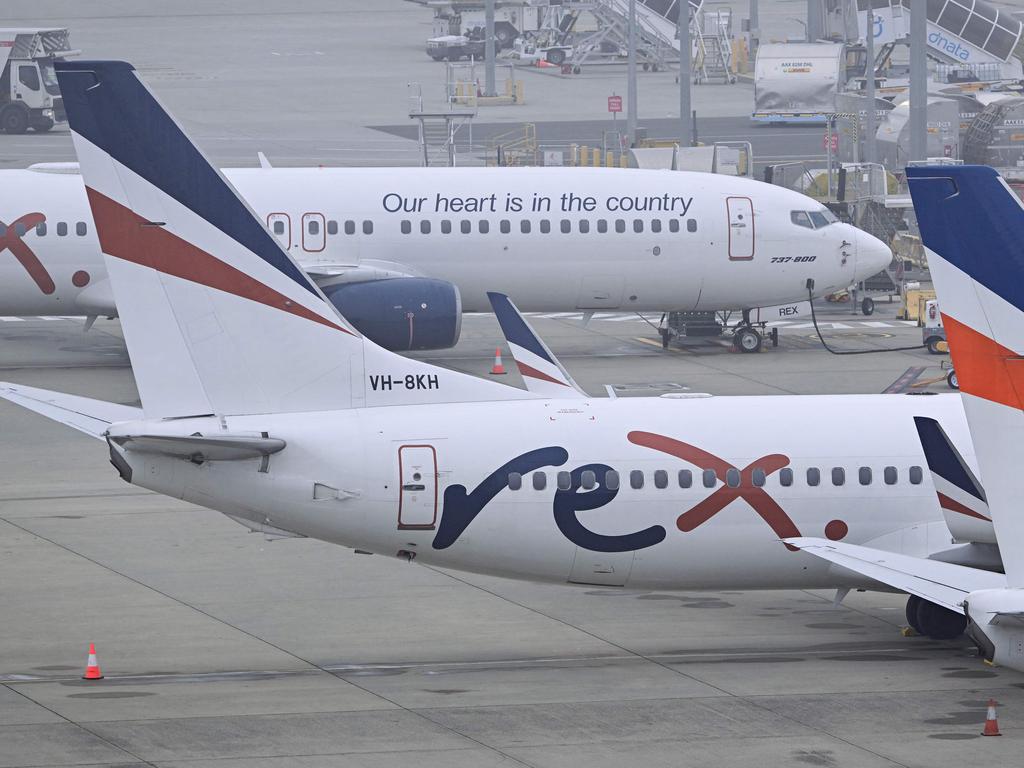Failure of public policy and government inaction to blame for Rex’s demise, says Sims
Former competition watchdog Rod Sims says public policy supporting higher airfares is to blame for Rex’s demise.

Business
Don't miss out on the headlines from Business. Followed categories will be added to My News.
Former competition watchdog Rod Sims says the collapse of Bonza and now Rex, is a failure of public policy no government has bothered to address.
Rex went into voluntary administration late Tuesday, just three months after Bonza collapsed, leading to the budget carrier’s liquidation.
Speaking on the ABC, Professor Sims said the notion Australia could not support more than two airline groups on major city routes was a furphy, with “all evidence” showing increased competition reduced fares.
“It’s unquestionable that’s the case, so why the government doesn’t change the policy levels to bring that about I really don’t understand,” said Professor Sims.
“All evidence from around the world is when you get routes that have this amount of traffic on them, you can sustain three players. The biggest problem is our slot allocation system.”

Slots at Sydney Airport — or the time windows allotted to airlines for flights in and out of Australia’s biggest gateway — continued to be a topic of hot debate in the industry.
Transport Minister Catherine King announced in February the government would adopt reforms recommended in a three-year-old report by former Productivity Commission chief Peter Harris, but as yet no further action had been taken.
Prof Sims said it remained a ridiculous situation that the company responsible for slot allocation was majority owned by Qantas and Virgin Australia.
“It’s just unbelievable. So when Rex or Bonza, when they want those key slots that they must have to be viable, they have to go and ask for them from Qantas and Virgin, and they have to put their business plans before them,” he said.
“So the government sets this system up for failure; it sets this system up for a duopoly, and it sets it up for higher airline prices than Australians should be paying.”
He said the slots were the place to start reform, because that would open the door to competition.
“Rex and Bonza as well, were constantly tapping on my door complaining that they couldn’t get the slots they need,” Prof Sims said.
“They should have anticipated that the system was so rigged against them that they were doomed to fail.
“You cannot have Qantas and Virgin Australia controlling the slots at Sydney Airport. That cements the duopoly and cements higher prices for Australia. We have to fix that.”
Qantas and Virgin Australia have consistently denied they played a part in the failure of Rex and Bonza, insisting both airlines had access to slots at Sydney Airport.
Airport Coordination Australia was the company responsible for slot coordination, and was controlled by Qantas, Virgin, the Regional Aviation Association of Australia and Sydney Airport.
At a Senate hearing last year, ACA chief executive Petra Popovac said Bonza had not actually applied for slots at Sydney Airport, and Rex had “very good slots”.
However data showed in the important morning peak between 6am and 11am, Qantas had 103 slots, Virgin Australia 57 and Rex only seven.
The ACCC declined to comment on the situation with Rex but indicated the commission was watching closely.
Last month, Qantas CEO Vanessa Hudson said history had shown three airlines struggled to survive in Australia, and government regulation of the industry should focus on the sustainability of existing operators.
She said Australia’s relatively small population and the economics of being a viable airline, made it challenging for airlines because it was a “capital intensive” business.
“I think that’s a really important consideration for governments thinking about regulation,” Ms Hudson said.
“We are an island nation, our economy relies on domestic aviation and the role that we play as a national carrier. We want our airlines, and Virgin and Rex, we want them to be sustainable and to be sustainable they’ve got to be making a certain amount of revenue to invest. We don’t want a weak aviation market.”
Administrator EY was expected to call the first creditors meeting next week, providing further details of Rex’s financial situation and the company’s future.
Originally published as Failure of public policy and government inaction to blame for Rex’s demise, says Sims





